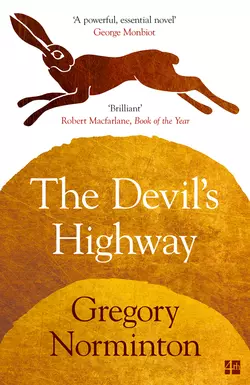The Devil’s Highway

Gregory Norminton
Тип: электронная книга
Жанр: Современная зарубежная литература
Язык: на английском языке
Стоимость: 853.37 ₽
Статус: В продаже
Издательство: HarperCollins
Дата публикации: 16.04.2024
Отзывы: Пока нет Добавить отзыв
О книге: Three journeys. Three thousand years. One destination. The Devil’s Highway is a thrilling, epic and intimate tale of love, loss, fanaticism, heroism and sacrifice.A Roman road, an Iron Age hill fort, a hand-carved flint, and a cycle of violence that must be broken.An ancient British boy, discovering a terrorist plot, must betray his brother to save his tribe. In the twenty-first century, two people – one traumatised by war, another by divorce – clash over the use and meaning of a landscape. In the distant future, a gang of feral children struggles to reach safety in a broken world. Their stories are linked by one ancient road, the ‘Devil’s Highway’ in the heart of England: the site of human struggles that resemble one another more than they differ.Spanning centuries, and combining elements of historical and speculative fiction with the narrative drive of pure thriller, this is a breathtakingly original novel that challenges our dearly held assumptions about civilisation.